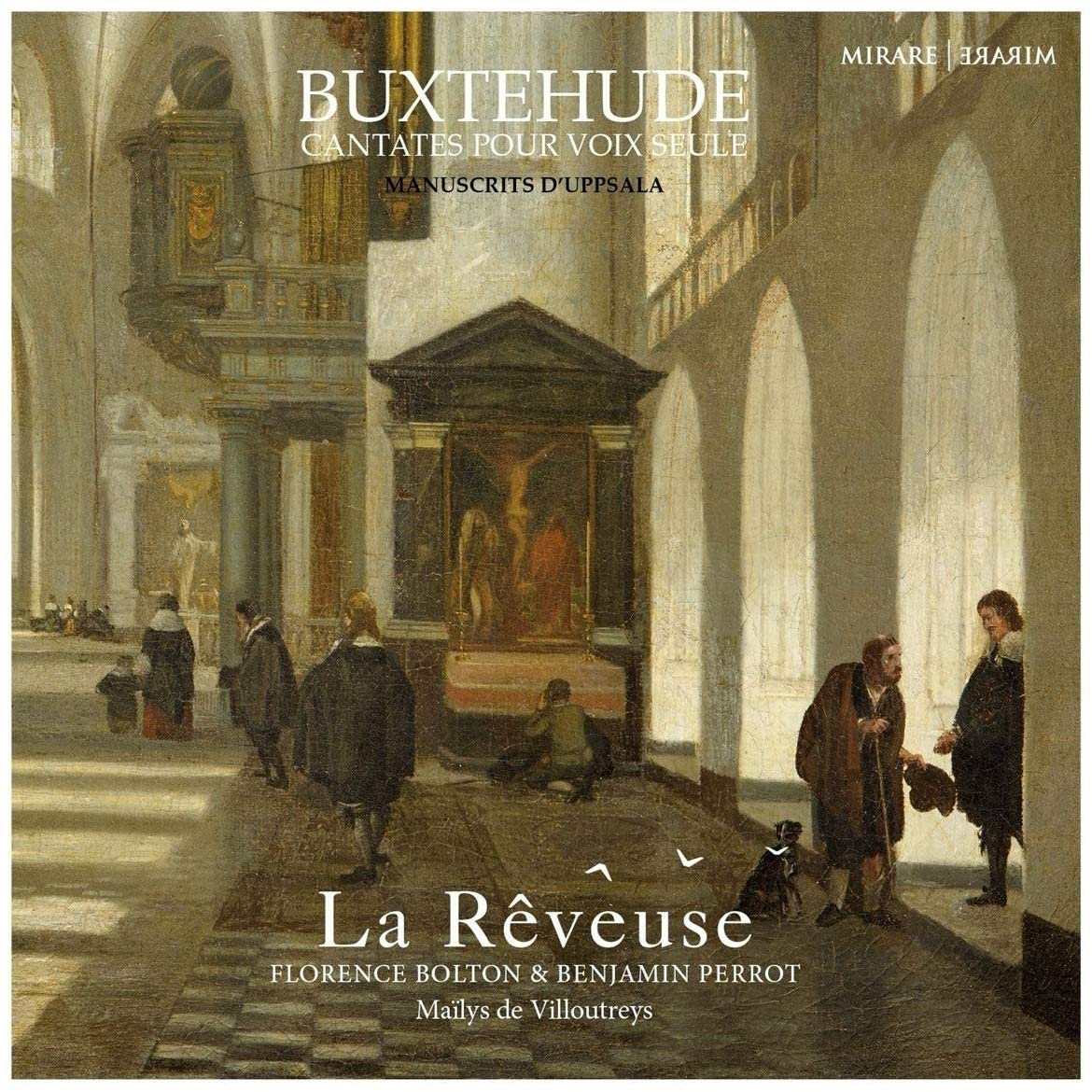La Rêveuse, Maïlys de Villoutreys, Florence Bolton & Benjamin Perrot
65:00
MIRARE MIR442
Click HERE to buy this on amazon.co.uk
The music on this CD places Buxtehude between his predecessor at the Marienkirche in Lübeck, Franz Tunder (1614-1667) and some of his contemporaries – Johann Philipp Förtsch (1652-1732), Gabriel Schütz (1633-1710/11) and Christian Geist (c.1650-1711). The other thread is that six of the nine pieces come from that remarkable source of almost all of Buxtehude’s substantial vocal output, the Düben Collection. Assembled for the Swedish Court and now in the University Library in Uppsala, the collection is a reminder that the Hanseatic League, trading around ports on the Baltic, was a powerful system of international connections before the narrower nationalism of the late 17th century took root.
The cantatas and their interleaving sonatas are played in an intelligent and well-mannered way by La Rêveuse, a Parisian/Breton ensemble which can boast two violins, dessus, tenor and three basse de violes, harpsichord, organ (a five rank positif by Dominique Thomas 2012 in the Église Protestant in Paris) and theorbo. Six of the items are solo cantatas with the Breton soprano Maïlys de Villoutreys, who sings cleanly and clearly, avoiding excessive vibrato but well able to colour her singing appropriately.
This CD is a welcome insight into the North German school pre-Bach, tastefully performed. The music lets us hear the kind of repertoire that Buxtehude lived among and which no doubt figured in the famous Abendmusiken in Lübeck. The influence of Italy is present in the stile moderna traits of some of the vocal settings and in the instrumental sinfonias between some episodes, recalling the operas and oratorios of Cavalli and Carissimi and the last piece, Herr, wenn ich nur dich hab, is built on a recurring ostinato bass. I listened to the whole recital with great pleasure: the music is well-chosen, nothing jars in the disciplined but relaxed performance, and it is a good advertisement for the group’s commitment to an under-explored repertoire.
David Stancliffe
